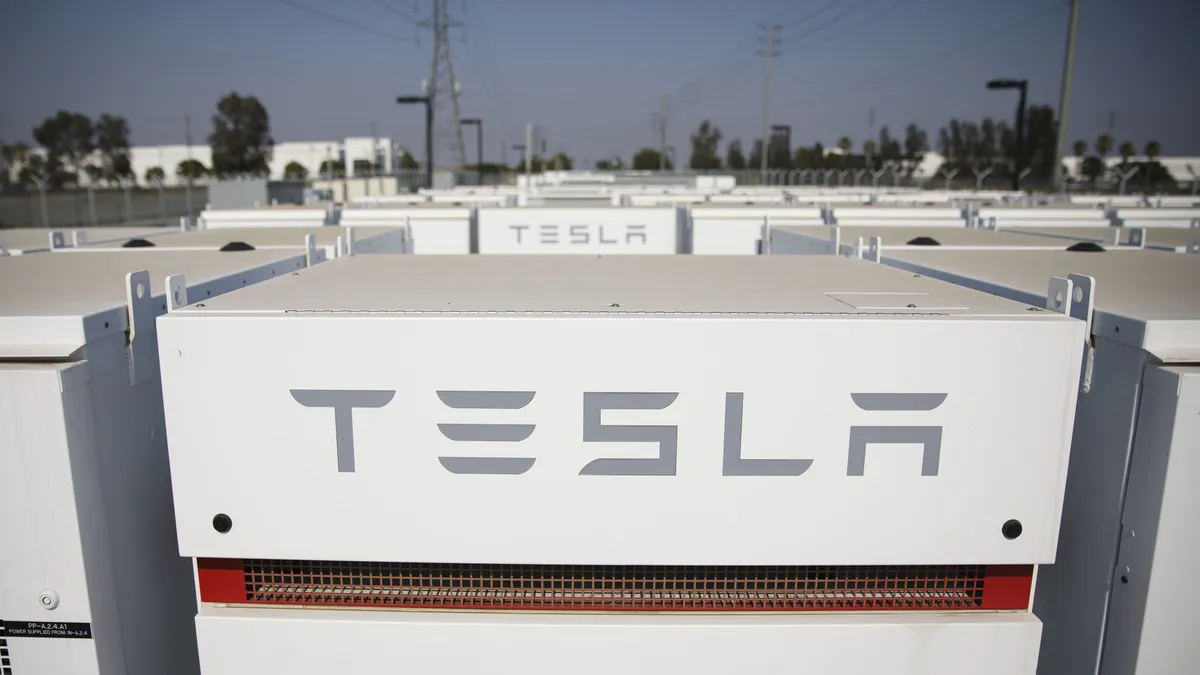Dive Brief:
- Issues at Tesla's automated battery plant in Nevada, nicknamed the 'Gigafactory,' are requiring the company to delay its production goals of 5,000 Model 3s until March, Supply Management reported Monday.
- The intricacy of the battery design combined with a more automated manufacturing process has slowed production, leading Tesla to redesign the product in-house.
- Engineers are currently addressing the problem, tweaking automated processes and robotics programs at the Nevada plant, according to reports.
Dive Insight:
Tesla has a history of supply chain issues, reaching back to its inception at an inconvenient location. While currently the issue seems relatively minor, ongoing problems will only lead to further delays for the company, which repeatedly misses its ambitious deadlines.
"The nature of manufacturing challenges during a ramp such as this makes it difficult to predict exactly how long it will take for all bottlenecks to be cleared or when new ones will appear," Tesla Chairman & CEO Elon Musk and CFO Deepak Ahuja recently wrote in a letter to investors. "Based on what we know now, we currently expect to achieve a production rate of 5,000 Model 3 vehicles per week by late Q1 2018, recognizing that our production growth rate is like a stepped exponential, so there can be large forward jumps from one week to the next."
The reality is that without time invested in prototypes and potential lengthy bumps within the production line, predictions for output are unlikely to be certain. And while the optimism behind planning for a potential leap in production speed is admirable, without supply chain stability, there's no way to ensure it.
Tesla has the interest of countless serious customers in mind; but unable to forecast delays, its ambitions sound more like wishful thinking.














